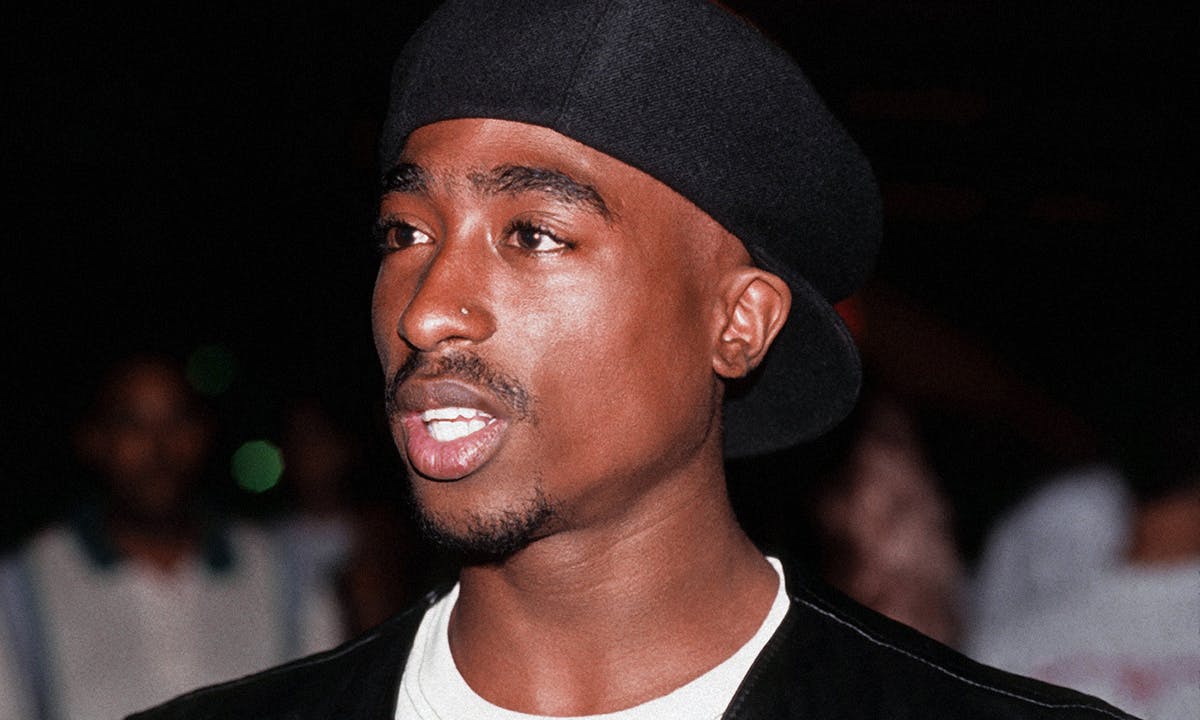
Nearly three decades after the bullets rang out on the Las Vegas Strip, a seismic leak has rocked the hip-hop world and reignited one of music’s most enduring conspiracies: Was Tupac Shakur’s death a meticulously staged exit from a treacherous industry? Newly surfaced audio tapes, hidden for years in the bowels of a long-forgotten private jet once owned by Death Row Records mogul Suge Knight, contain what experts are calling “coded prophecies” from the rap legend himself. In fragmented recordings dated just days before his September 7, 1996, shooting, Tupac speaks cryptically of “snakes in the garden,” “a hit from the inside,” and a radical plan to “vanish like smoke” – leaving fans, family, and foes to mourn a body that may never have been buried. “This isn’t just audio; it’s a blueprint for survival,” declared forensic audio analyst Dr. Elena Vasquez, who authenticated the tapes for a forthcoming HBO Max documentary. “Tupac was warning us all along.”

The tapes, totaling 14 minutes across three grainy cassettes, emerged last week when a federal auction of seized assets from Knight’s 1990s empire unlocked the door to a dusty hangar at Van Nuys Airport. Knight, now 60 and serving a 28-year sentence for a 2018 hit-and-run that killed Terry Carter, had stashed the jet – a customized Gulfstream IV dubbed “The Thug Life Express” – as collateral in a 1997 bankruptcy filing amid Death Row’s collapse. For years, it languished, its contents sealed under court order due to ongoing RICO probes into the label’s alleged ties to gang violence and extortion. But in August 2025, as part of a broader asset liquidation tied to Knight’s appeals, the jet was cracked open by U.S. Marshals. Inside the cockpit safe: not just faded flight logs and diamond-encrusted jewelry, but a velvet pouch containing the cassettes, labeled in Tupac’s unmistakable scrawl: “For the real ones only – 9/6/96.”
Restoration work, spearheaded by Vasquez’s team at UCLA’s Digital Forensics Lab, peeled back layers of degradation from humidity and time. The first tape crackles to life with Tupac’s voice, hoarse from chain-smoking and paranoia-fueled nights, addressing an unseen confidant – possibly his mother, Afeni Shakur, or close ally Leila Steinberg. “They think they got me cornered, but I see the blades comin’. Snakes in the garden, man – close enough to kiss your cheek before the strike,” he intones, his East Coast cadence laced with West Coast menace. References to “Puffy’s shadow” (a nod to Bad Boy Records’ Sean “Diddy” Combs) and “Suge’s crown slippin’” paint a portrait of fractured alliances. Tupac, then 25 and fresh off a prison stint for a sexual assault conviction he always denied, had bridged the East-West rap wars with his 1996 double album All Eyez on Me. But the tapes reveal a man unraveling: “The game’s a setup. They want the king dethroned. But what if the king just ghosts? Lets ’em grieve the ghost, while I rebuild in the shadows.”
The most explosive fragment comes midway through Tape 2: a 45-second monologue laced with what fans are dubbing “Tupac code” – numerology, biblical allusions, and backwards-masked phrases decoded by online sleuths. “Survive the fire, rise from the ash. Six bullets, but the seventh’s a fake-out. Disappear to Cuba, or maybe that island off the coast – let the world weep for a shell,” he murmurs, his breath ragged. Audio reversed reveals whispers of “Makaveli” – Tupac’s alter ego, drawn from Niccolò Machiavelli’s The Prince, a treatise on feigned death for power plays. Conspiracy theorists, long convinced Tupac faked his demise (sightings in Cuba, Malaysia, even a blurry 2018 Coachella crowd photo), now point to this as gospel. “He coded it for us – the real OGs,” tweeted @PacLivesForever, whose thread dissecting the tapes amassed 2.3 million views in 48 hours. #TupacFakedIt trended globally, spiking Spotify streams of The Don Killuminati: The 7 Day Theory by 450%.

Experts caution against full-throated belief. “These are emotional vents, not a suicide note,” Vasquez told this reporter, noting the tapes’ context: Tupac recorded them post-Mike Tyson fight, amid death threats after his November 1994 Quad Studios shooting – a Quad attack pinned on Bad Boy affiliates like Notorious B.I.G. and Puffy. Yet the leak’s timing feels orchestrated. It coincides with the July 2023 arrest of Duane “Keffe D” Davis, a Southside Crips associate charged with orchestrating the Vegas hit. Davis’s bail hearing last month spilled fresh details: a green Cadillac, .40-caliber Glock fire, and a $1.4 million bounty allegedly greenlit by Puffy amid label beefs. Knight, from his cell, has denied involvement but hinted at “unfinished business” in a prison letter leaked to TMZ. Afeni’s estate, managed by Tupac’s sister Sekyiwa Shakur, issued a statement: “These tapes honor his voice but fuel dangerous myths. Pac is at peace – let him rest.”
The industry’s reaction has been a powder keg. Diddy, 55 and facing racketeering charges unrelated to Tupac, blasted the leak on Instagram Live: “Haters diggin’ graves again. Pac was family – this snake talk is cap.” Snoop Dogg, who feuded with Tupac before reconciling, posted a cryptic emoji chain: 
.png)
For a generation raised on Tupac’s anthems of resilience – “Keep Ya Head Up,” “Changes” – this leak is both balm and barb. It humanizes a martyr: not invincible, but acutely aware of the vipers in his entourage. From his Baltimore roots to Black Panther lineage, Tupac embodied revolution, but the tapes underscore his vulnerability. “He foresaw the betrayal because he lived it,” said author Michael Eric Dyson, whose 2025 biography Tupac: Resurrection Revisited cites the recordings. “The industry chewed him up – cops, labels, rivals. Faking death? That’s the poet’s ultimate rebellion.”
As forensic teams race to transcribe the final tape – rumored to name “the trigger man” – Las Vegas PD vows a review, though skeptics doubt it’ll unearth new leads. Sekyiwa, in a rare sit-down with BET, urged closure: “Dad’s message was life, not limbo. These tapes? They’re echoes – beautiful, broken echoes.” Yet in chat rooms and cyphers from Compton to Harlem, the debate rages: Did Tupac slip the noose, watching from afar as holograms of himself drop bars? Or did the betrayal claim him, leaving only whispers? One thing’s certain: in death – real or staged – Tupac still commands the stage, his voice cutting through the static like a ghost in the machine.




